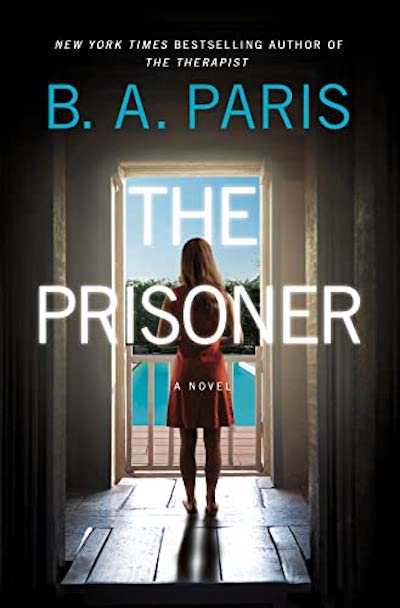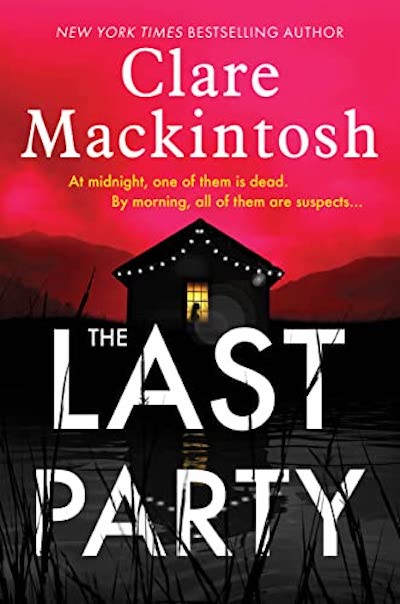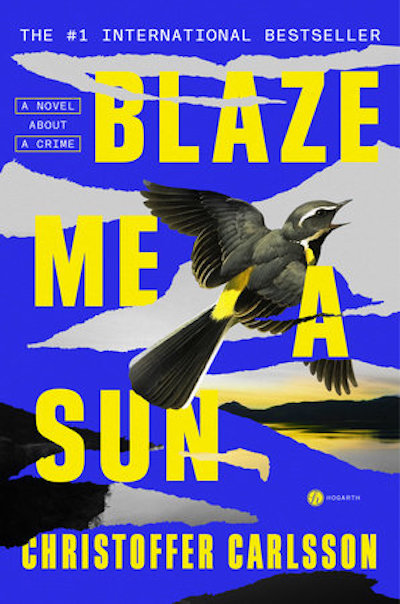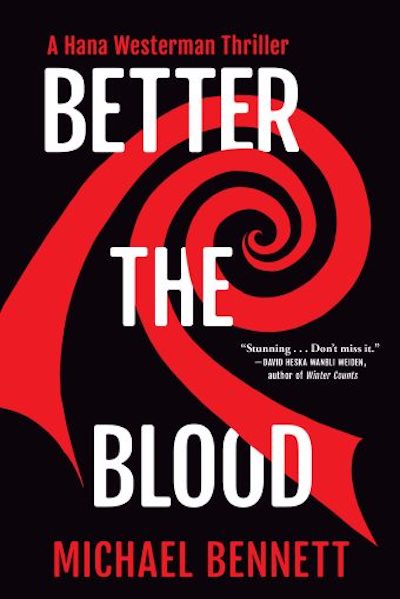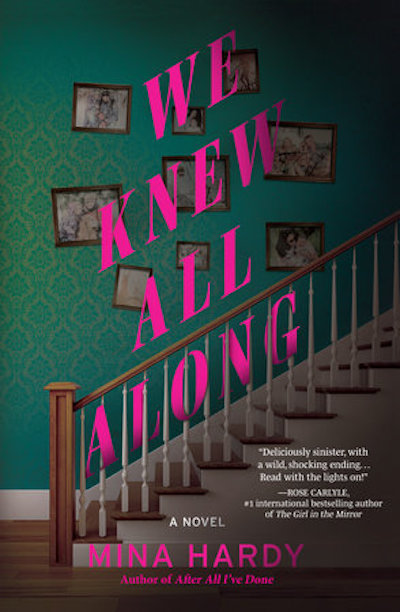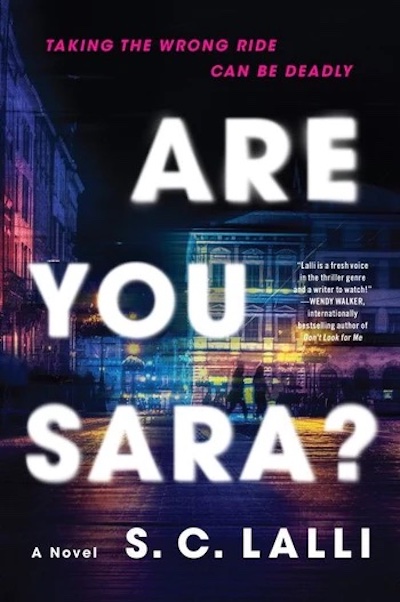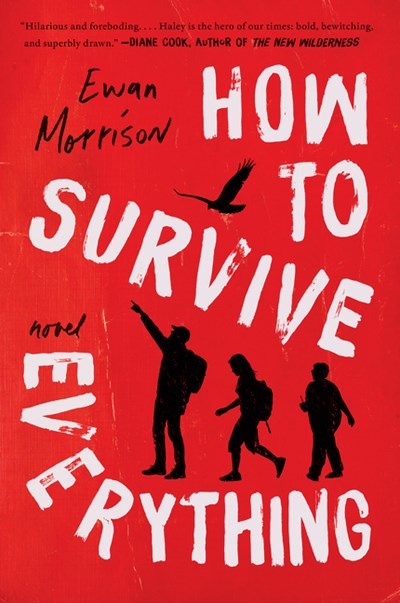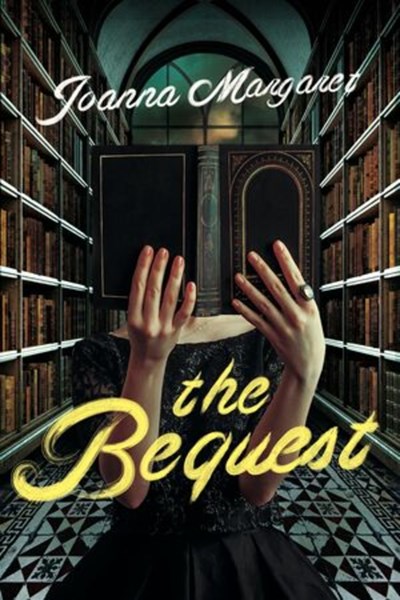In Paris’s latest thriller, a London woman’s trip from rags to riches and back again is a tense fight against a wealthy man who can’t be denied his out-of-control wishes. The tale alternates between two timelines. In the present, readers find Amelie Lamont kidnapped and trapped one floor above her husband, Ned Hawthorpe, who’s also kidnapped and whose rich father doesn’t seem too interested in getting him back. While they wait, Ned makes clear that he’s his stone-cold father’s son, telling the kidnappers that they can go ahead and kill Amelie as it will make his father cough up the money. The past timeline, which takes place several years earlier in the 1990s, shows how Amelie got into this nightmare, starting when her widowed father died and left her homeless. She finds her way to a job at a magazine, with Ned the boss. Desperate for money for college, she makes a startling deal with the rich man, one she immediately regrets. Both Amelie’s time in her dark prison and the lead up to it are psychologically reminiscent of Emma Donoghue’s Room, portraying the intense inner machinations of a woman pushed to the brink. But this web of fear and lies is much more complex, satisfyingly so, than Room, involving many more characters, intricate plotting, and layers of subterfuge. Paris’s fans won’t be disappointed and readers new to the author will be hooked.
Suspense
Rhys Lloyd, a former opera singer, has recently built a series of luxury homes overlooking Mirror Lake, on the boundary between Wales and England. Neither the process nor the end results endear him to the locals, to say the least. To attempt to mend fences, and bring the townies and the posh lake crowd together, he throws a massive New Year’s Eve party, only to disappear in the middle of it. When Rhys’s body is found floating in the lake on New Year’s morning, no one seems all that surprised. Nor sad. Not the town folk, not his wife, and certainly not DC Ffion Morgan, who is assigned to the case. Ffion is a local, back home after a failed marriage, and her search for the killer brings her close to people she’s known her whole life, and close to secrets of her own. Against her wishes, she’s paired with DC Leo Brady from the English side of the lake, and they provide every sort of tension imaginable, from national to sexual, giving the book a good bit of levity. Like the TV series “Broadchurch” and the novels of Ann Cleeves, this wonderful novel takes the reader—through twists and turns, and red herrings aplenty—deep within a community. Crime fiction is a whole lot better now that DC Ffion Morgan has arrived.
Major events in Swedish history that caused the nation to see itself anew parallel the events in this book, with the town of Halmstad a microcosm of the larger turmoil. As the book opens, a woman is found in the back of a car, raped and murdered. The crime will always be linked in the minds of locals with the (real-life) assassination of Sweden’s prime minister, Olof Palme, which happened on the same night, February 28, 1986. Halmstad is in a staid area, where everyone knows everyone, the kids play soccer with a beloved coach, and what farms are left are the quiet backbone of life. The death of Palme and of Stina Franzén, the murdered young woman, cause a kind of shocked introspection whose weight pervades Carlsson’s writing. Horror surfaces once again when another woman disappears the day before the relatively nearby Chernobyl nuclear reactor explodes on April 26, 1986. Chernobyl is “on the other side of freedom,” but even given that the crimes are in much-more-open Sweden, investigator Sven Jörgensson can’t catch the man who taunts him with phone calls and promises there will be more. As years go by, Sven’s son becomes involved in the impossible puzzle, as does a writer who grew up locally and who has returned to write about the crimes (and who narrates this tale). Following events over several decades brings us to care for the characters as much as the outcome of this case, one that’s as unpredictable as it is tragic. The author’s U.S. debut (he’s the youngest winner of the Best Swedish Crime Novel of the Year, for The Invisible Man), this is an absorbing and thought-provoking puzzle.
A tight and tense police investigation that brilliantly integrates Māori culture and history. When a gruesome murder in contemporary Auckland, with the victim found hanging in a secret room within an abandoned building, leads to another murder, Māori detective Hana Westerman realizes she may be on the trail of New Zealand’s first serial killer. But what connects the victims? A daguerreotype from New Zealand’s bloody, colonial past—plus texts and images the killer sends her—provide Hana with a terrifying road map to what’s ahead if she can’t stop him. Through Hana, author Michael Bennett (Ngati Pikiao, Ngati Whakaue) connects the past and the present, both in New Zealand’s history and within Hana’s own life. To find the killer; keep her family safe, especially her university-age, politically charged daughter; and face a painful incident from her youth, Hana must undergo a transformation. And the woman we meet at the end of the narrative is indeed far different from the one who begins it. This is crime fiction at its best: well-paced, richly characterized, and fearless in confronting the pain of colonialism.
Murder at the wedding of one of Sri Lanka’s one percent? I initially imagined this to be a cozy affair, with lots of chatter about couture, gossip about affairs, and the body of one of the bridesmaids—the one no one likes—being discovered in the shrubbery, poisoned. Boy, I couldn’t have been more wrong. Yes, no extravagance is spared or undocumented—Vuitton is the bag of choice—but this crime novel is far darker, far more terrifying than I had ever imagined. It’s super-perfect Kaavi’s wedding—she of the billionaire family, the foundation devoted to girl empowerment, the perfect blow-out—and she’s invited her former best friend, Amaya, to the wedding. Not only were the two besties all throughout childhood, they were college roommates in the U.S., until an epic falling out involving Amaya’s boyfriend—whom Kaavi is now set to marry. Though they haven’t spoken in five years, Amaya flies to Colombo with one goal: stop the wedding, by any means necessary. Jealous much? Oh, if only it was mere jealousy in this nothing-is-what-it-seems narrative. Perfectly paced, rich in Sri Lankan culture, witty in its descriptions, and well aware of gender and class disparities, Jayatissa’s creation is that rare bird: the perfect thriller. By the author of My Sweet Girl, this book will appeal to fans of Julie Clark, Samantha Downing, and Lucy Clarke.
Hartstone’s debut draws on the real-life town of Marshall, Texas: a quarter of all patent cases in the country are heard there. In the 1990s, Judge T. John Ward made his courtroom in the Eastern District of Texas, or EDTX, a kind of patent-trial machine, using timers when lawyers spoke and limiting the number of pages they could file. In addition, Marshall’s juries award unusually high amounts in damages, all making EDTX attractive to those suing for patent infringement. Judge Ward is called Gardner here, but the practices are the same. Appearing in his court is Amir Zawar, whose rideshare app may have stolen another product’s design. Representing Zawar is James Euchre, a lawyer who tells himself he’s quit smoking…he only has a few per day, after all…and is trying to limit himself to three drinks a day. His resolve is tested when his client is, shall we say, reluctant to go along with court decorum. It’s not a great idea to hit your lawyer and threaten the judge’s life, but it’s even worse when the judge is later found dead. Euchre has never worked on a criminal case before, let alone one that could involve the death penalty, but Zawar insists he stay in the lead counsel seat, with both characters, along with Euchre’s love-interest coworker in the trial, taking readers on a tension-filled ride to justice. Lawyers, such as one Mr. Grisham, have long written compelling legal thrillers; this book, by an experienced TV writer, stacks up favorably against the legal greats.
Jewelann Jordan attends her high-school reunion to nonchalantly run into her former, sort-of-boyfriend, Christian Campbell, and dump him later that night as revenge for his behavior when they were teens. Christian, who reveals that he’s now a surgeon, and who takes more than one reunion attendee back to his hotel room, doesn’t take well to rejection. A few days later, Jewelann’s controlling husband, Ken, announces that he’s renting out their carriage house, has already found a tenant, and by the way he’s here already. You can guess who it is. Thus begins a fraught game. Jewelann believes Ken’s business trips are covering an affair, but she’s scared to confront him. And what if he knows about what Jewelann and Christian used to get up to in that carriage house, activities that Christian wants to continue and is threatening to reveal? The maelstrom of emotions and abuse boils over in the most shocking way, and readers will not be ready for the whoa-that’s-way-out-there ending. Hardy is a pseudonym for author Megan Hart, whose just released Coming Up for Air also opens with reunion shenanigans.[‘
A complex tale centered around law student Saraswati “Sara” Bhaduri, who’s struggling financially to put herself through law school. One of her side gigs is bartending at a dive bar, which is how she meets up with Sarah Ellis, who’s passed out in the women’s room one closing time. Oddly, they hit it off as they wait for their Ubers, which arrive at the same time. Sara jumps in and in seconds is asleep—only to wake up miles from home in the rich part of town. There’s only one explanation: they mixed up their cars. When she makes it home, it’s to find her building a crime scene and Sarah dead. Is Sara in some way responsible? Sara’s guilt may seem odd at first, but as the novel expands—and we learn more about her life—the pieces start to fall into place. It’s fun to see Sara take even greater charge of her life as she fights to learn what happened to Sarah and what might be her own fate. A fresh and powerful new voice, this is a crime writer to watch.
A brilliant look at pandemics through the eyes of Haley, a 16-year-old girl who, with her little brother, are abducted from their mother by their father and taken to a rural farm—no Internet, no cell phones—in northern Scotland. They join a handful of survivalists, Haley’s dad is clearly the ringleader, and they’re waiting for the next pandemic, which should be arriving any day; a new virus, more horrible than anything we can imagine, has just made its way to the U.K. Bleak? Indeed. But fascinating, and even comic at times. Haley writes the book as a sort of parody of her father’s survivalist manual, with her own sarcastic spin (“How to Abduct Your Own Children,” “Home Surgery for Beginners.”) Add to this rich details about life on the compound, a budding romance with the one other teen in lockdown, and continual speculation about her parents, both of whom she believes to be crazy—any reader would agree—and whose epic divorce left her having to always choose between them. At the heart of the book is the question of truth. Is the world beyond the barbed wire that surrounds the farm really erupting in chaos, with riots in the streets and bands of the infected roaming the countryside? Or is life as they knew it chugging along, little different except that Haley and her family have left it? And does Haley—or any of the survivalists—really want to know the answer? A bit of crime fiction, a lot of dystopia, and 100 percent compelling.
Isabel Henley leaves Boston for the remote coastal Scotland college of St. Stephens, ready to immerse herself in a feminist perspective of Catherine de Medici’s court. She’s chosen St. Stephens so she can work with Professor Madeleine Grainger, but arrives to find that Madeleine has fallen from cliffs near the school and died. There are whispers that it wasn’t an accident, but Isabel hopes they’re just drama—St. Stephens is quite the gossip hothouse. Isabel’s other contact, Rose Brewster, a student she knew in Boston, soon disappears mysteriously, leaving Isabel both socially bereft and unsure of her future at the school. Then things take a turn, both for the better and the much worse. Isabel takes over Rose’s dissertation—it’s funded!—and she’s off to Genoa, Italy, to research the history of a family still living there, the decidedly odd Falcones. Isabel is locked into their home’s archive every day by the debonair son of the house, deciphering letters written during the Renaissance that offer a tantalizing look at past life and politics (a Falcone was involved in a conspiracy to assassinate French king Henry III) and a chance to save Rose. Also tantalizing is Margaret’s language, which immerses us in Genoa’s “intestinal alleys” and Renaissance passive aggression (“I know I can expect nothing in return except for your contempt” is a winning line in one love letter). There are two attractions here: the present-day academic whodunit and the olden puzzle revealed in Renaissance letters; viewers of the Netflix series “The Chair” will eat this up, as will readers of Philippa Gregory and Robert J. Lloyd.

